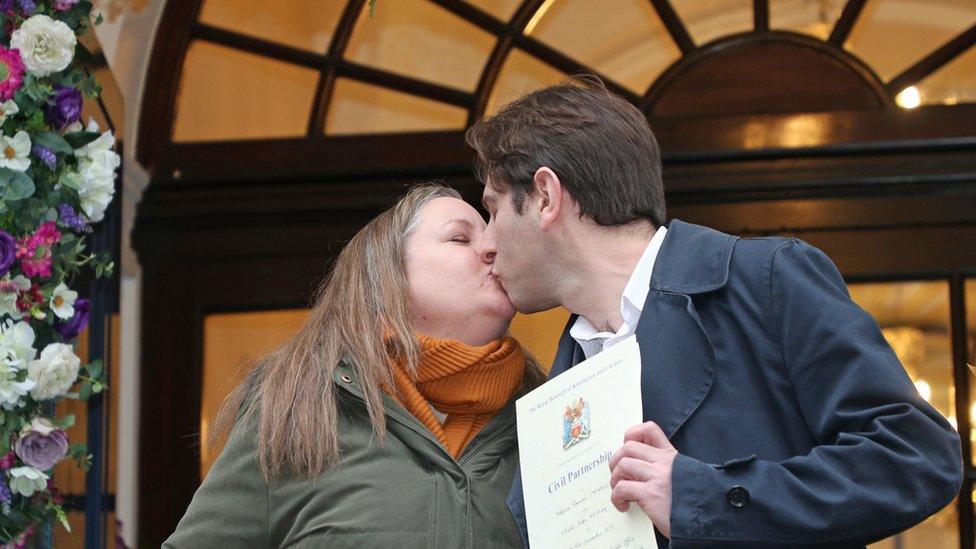Outdoor civil weddings and partnerships get the go ahead
- Published
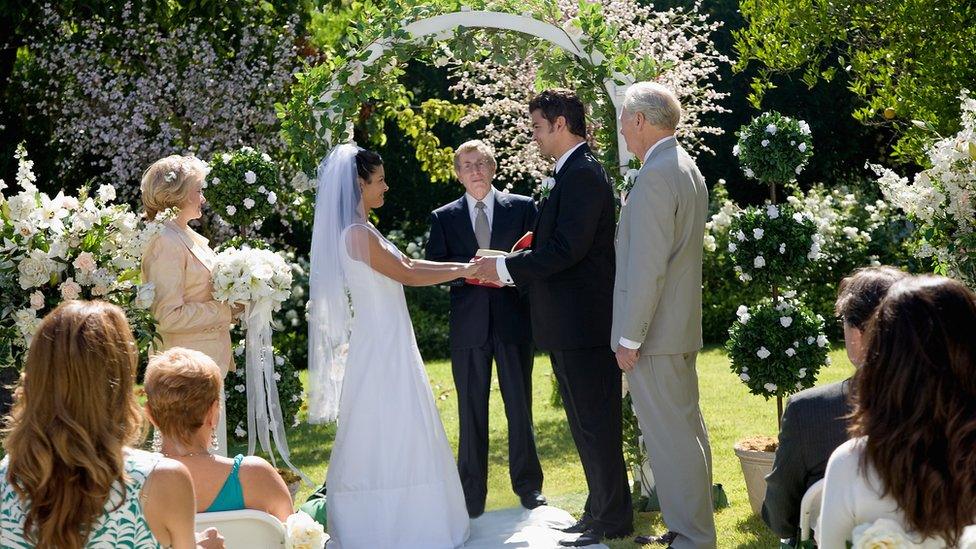
Civil weddings will be permitted to take place outdoors for the first time in England and Wales from next month.
The ceremonies at approved premises, external such as hotels currently need to be in a room or other permanent structure.
The change, which also applies to civil partnerships, will allow outdoor ceremonies from July to next April, and will mean more guests can attend events affected by social-distancing rules.
A consultation will take place to see if the change should become permanent.
It comes as a relaxation of coronavirus restrictions in England and Wales from Monday will increase the number of people able to attend weddings and civil partnerships.
In England the 30-person cap will be lifted - but venues are being asked to limit numbers based on space and to enforce social distancing measures, including the wearing of face coverings indoors.
In Wales, the number of people who can attend will be determined by the size of the venue and an assessment of Covid risks - including social distancing.
But the change will only apply to locations already approved to hold civil weddings and partnership registrations, so will not expand the number of venues available this summer.
On Sunday, the UK recorded another 9,284 Covid cases and a further six deaths within 28 days of a positive test.
Latest government figures, external also showed nearly 43 million people in the UK have had their first coronavirus vaccine, while 31.3 million have had their second jab - 59.5% of the adult population.
Justice Secretary Robert Buckland said: "A couple's wedding day is one of the most special times in their lives and this change will allow them to celebrate it the way that they want.
"At the same time, this step will support the marriage sector by providing greater choice and helping venues to meet demand for larger ceremonies."
MPs will not have to vote on the law change, as it can be introduced directly by a government minister.
Until 1994 marriage ceremonies in England and Wales could only take place in churches and register offices.
An amendment to the law permitted ceremonies at other locations including landmarks, stately homes and dedicated wedding venues. The sites must be approved by local councils, with a registrar attending to record the ceremony.
About 75% of non-religious weddings now take place on approved premises.
For historical reasons, the law already allows Jewish and Quaker wedding ceremonies the option of taking place outdoors. But other religious ceremonies will continue to take place indoors in churches or certified places of worship.
The government says it plans to introduce legislation to allow religious marriages to take place outdoors when parliamentary time allows.
The issue of holding ceremonies outdoors was among a series of changes proposed by the Law Commission, external last year.
The commission, which reviews legislation, said current laws were no longer meeting the needs of many couples, and suggested private gardens, beaches and parks could all become potential venues in the future.
However, the Ministry of Justice says the location for ceremonies taking place outside from July must be assessed to be "seemly and dignified" and there will be public access and signage requirements.

TOGETHER: The hilarious and heart-breaking new film starring James McAvoy and Sharon Horgan
"THERE HAVE BEEN SACRIFICES ALONG THE WAY": The quest to develop vaccines to fight the pandemic

- Published14 July 2021
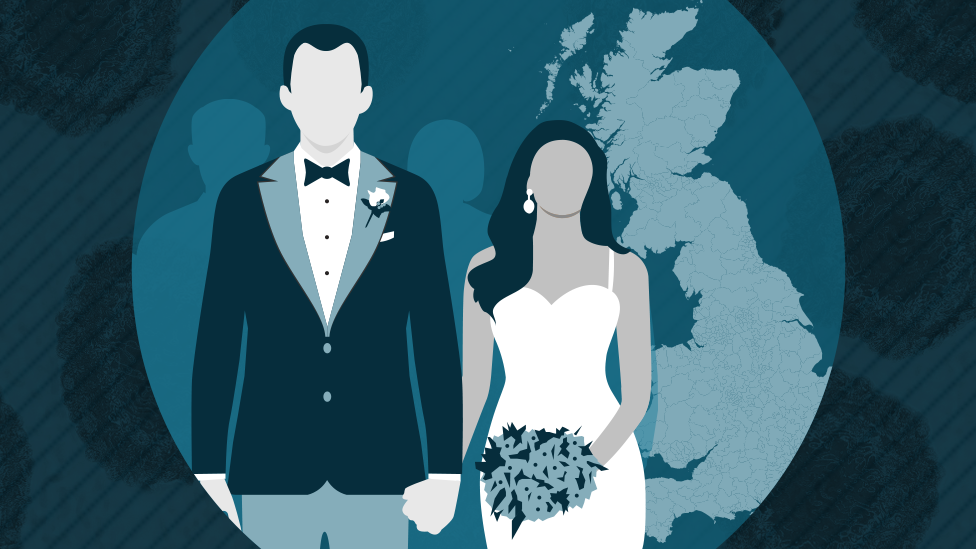
- Published11 May 2021
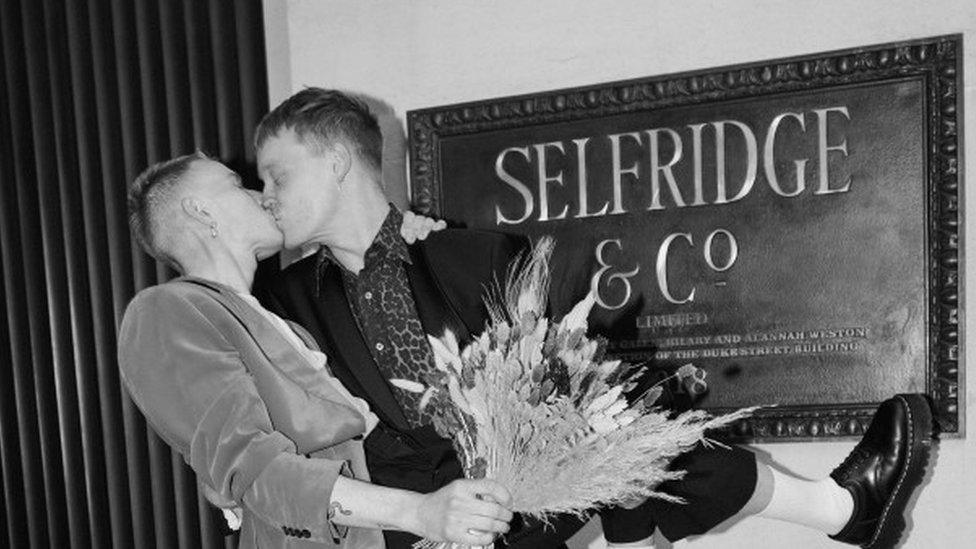
- Published4 May 2021
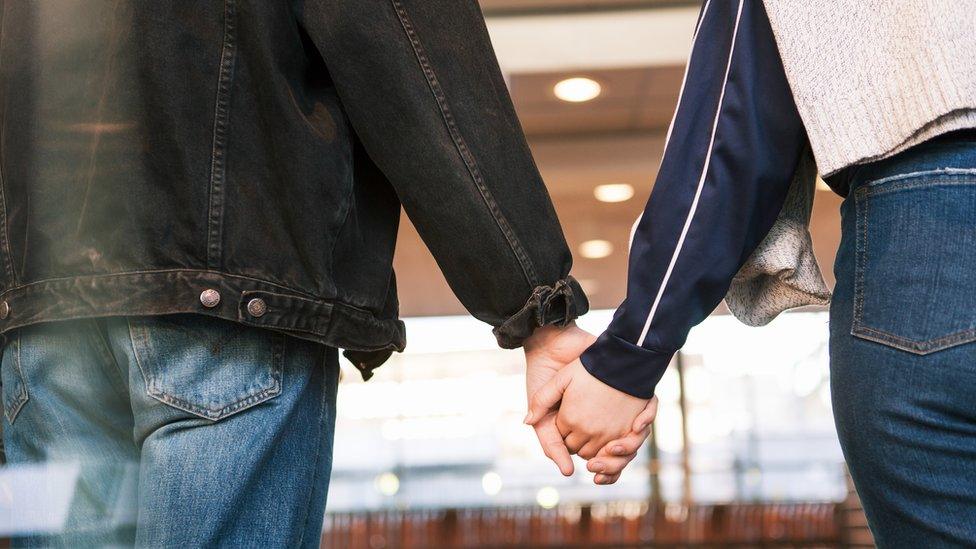
- Published26 February 2021
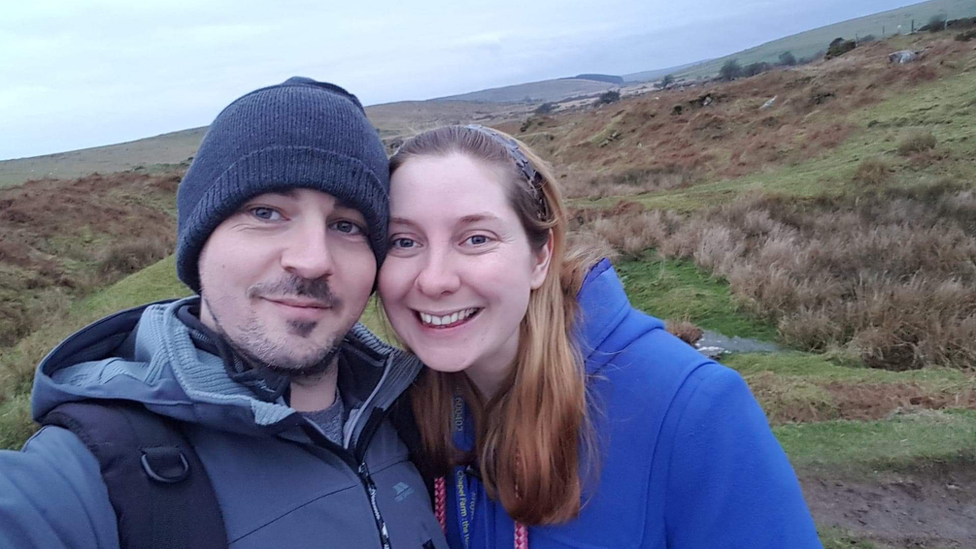
- Published25 February 2021
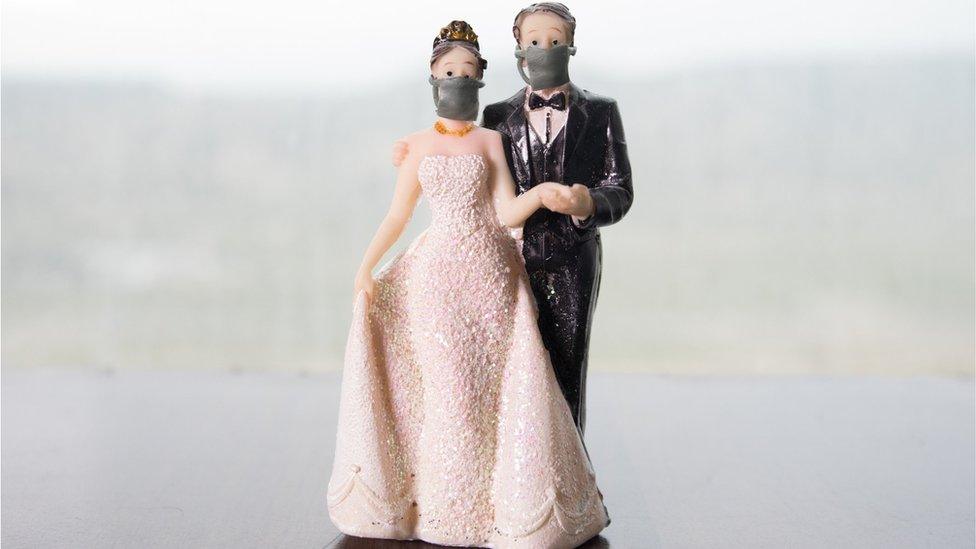
- Published31 January 2021
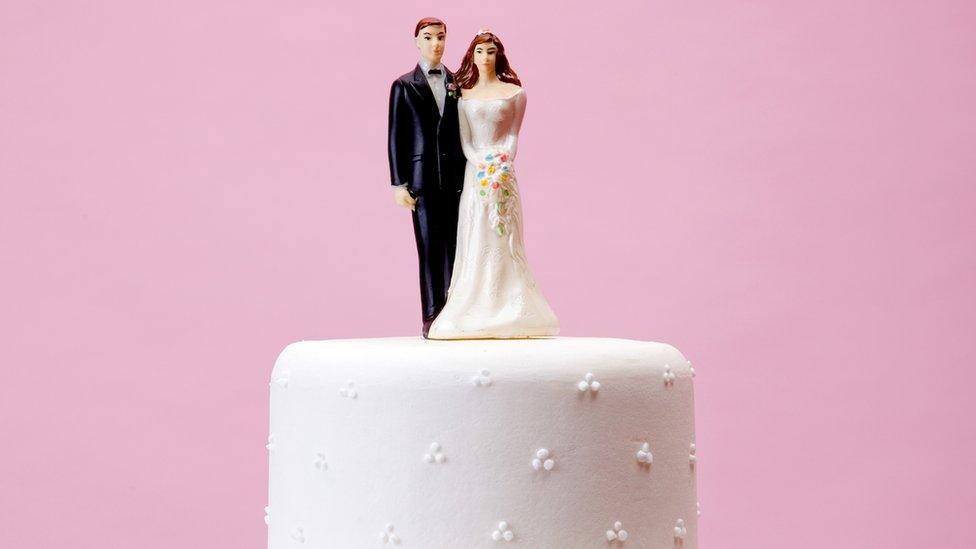
- Published14 February 2020
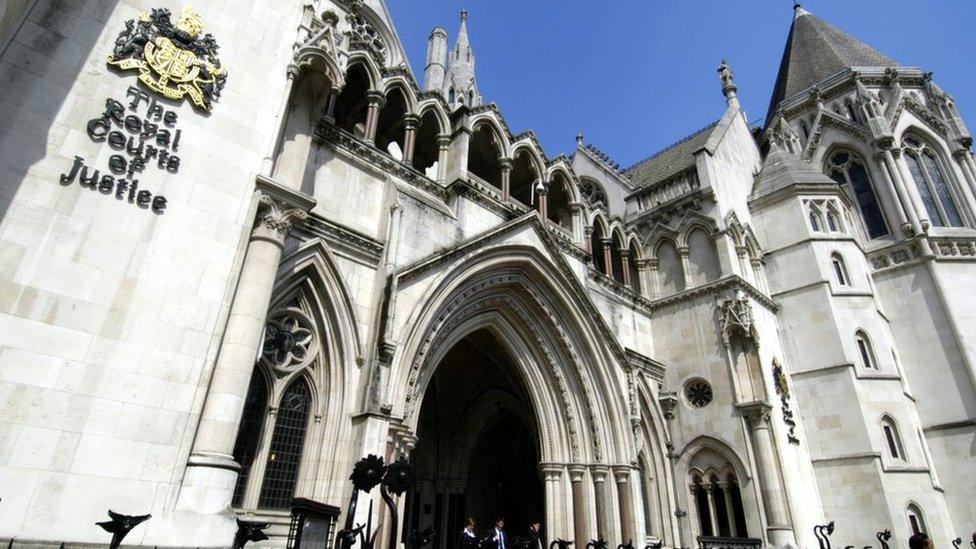
- Published31 December 2019
